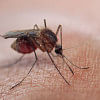Not only joints, Chikungunya messes with your mind too

My seven-year-old twin cousins recently suffered from Chikungunya. After the debilitating pain all over the body and the high fever was gone, what they wanted to do was "cry for no particular reason" in their words. Although I myself suffered the virus attack before these two usually-very-jolly just like other seven-year-olds, it is their wanting to cry for nothing that led me ponder on the subject of my writing.
Also read: Dhaka North City Corporation (DNCC) mayor Annisul Huq apologises for remark on chikungunya
Can Chikungunya mess with one on the psychiatric level? Bonding with a few colleagues and friends over this new found talk of the town, I realised most of them, including myself, claim to go through some sort of psychotic phase just after the initial period of the ailment. And some gave hints of still struggling with the issue, although not severely.
Read more: Chikungunya Outbreak: Authorities failed to act timely, promptly
During the last two months, anticipations and suspense regarding the viral fever caused by Aedes Aegypti mosquito have gone viral. Half of the Dhakaites still are in physical pain left by the virus, half are half-relieved that they have been spared so far and half-anxious about being the next victim. While authorities are busy dodging bullets and are in denial about the severity of public suffering nearly calling it a media creation, let's shed some light on the less travelled aspect of this disease.
Also read: Annisul blames homegrown mosquitoes
The psychiatric effect of Chikungunya, although lesser known, is real. A professor of medicine in a Brazilian university, Carlos Clayton Torres Aguiar, wrote in his journal published in "Journal of Drug Metabolism & Toxicology" on April 22, 2017, citing various sources, that psychiatric manifestations due to ChikV infection include insomnia, aggressiveness, pessimism, loss of concentration, depression and confusion.
Study from India
In a study carried out in India in 2015, almost 60% of the Chikungunya patients presented anxiety disorder or depressive episodes. The report published online on October 1, 2015, is titled "Psychiatric Morbidity in Patients with Chikungunya Fever: First Report from India". The researchers selected 20 confirmed ChikV patients without any previous history of psychiatric complications. Using "WHO International Classification of Diseases, 10th edition (ICD -10) of Mental and Behavioral Disorders" the researchers found that among the 20 patients five (25%) were diagnosed with depressive disorder, three (15%) patients had Generalized Anxiety Disorder (GAD), two (10%) patients GAD with Panic attacks, one (5%) patient phobic disorder (claustrophobia), 3 (15%) patients Somatoform Disorder, three (15%) Neurasthenia(Fatigue Syndrome), etc. Two (10%) patients presented with vague somatic complaints which did not fit into any of the diagnostic categories.
Also read: Chikungunya Outbreak: Blame lies with city corporations
In order to ensure that these complications are related to the ChikV infection patients who started having symptoms during the illness till two weeks of diagnosis were selected.
The results were similar to an earlier study done in Mauritius.
Study from Mauritius
Researchers from Mauritius compared the morbidity and quality of life of military policemen infected with Chikungunya virus (CHIKV+) 30 months after contamination. The researchers write in their original study published in 2011 that their observations resulting from the experiments confirm the long-term impact of CHIKV infection on both physical and mental health. Questions persist regarding the duration of this impairment and the possibility of a return to "before CHIKV" health status for infected patients.
Study from Brazil
According to the researchers from Brazil, CHIKV is the most significant human pathogen in terms of morbidity among others of its kind (Alphaviruses). The Brazilian researchers conducted a comparative study between 20 confirmed ChikV patients and 20 uninfected individuals in 2016. Moderate anxiety was more prevalent among patients who had suffered from CHIKV infection. Eight of 20 patients had severe anxiety, while there were no cases of severe anxiety in the uninfected group. Moreover, infected individuals had milder to moderate symptoms of depression than the other group members did and hopelessness was slightly more prevalent in patients who had CHIKV. The infected twenty patients without previous history of psychiatric disease suffered alterations in their mood and anxiety during the acute phase of CHIKV infection that lasted for up to one year after the onset of the disease.
Citing various sources and their study, the researchers say even though CHIKV is not considered a neurotropic virus, several neurological complications have been described and more recently mental disorders have been reported as a consequence of the viral involvement of neurones. This increases the possibility that CHIKV infection changes the way the nervous system functions.
The recent Chikungunya outbreak in Dhaka has phantomised the disease. The lack of knowledge and almost no encounter with the virus before recent times have led to such phenomena. Also the unavailability of any medicine other than some pain relievers and absence of any proper diagnosis have taken the disease to an even shadier place. Cherry on top, authorities concerned has denied the immense outspreading of the infection and asked media to not oversell it. The people of Dhaka city have been left to a state where they do not know who to turn to. In the midst of all this, they are unknowingly suffering from the psychiatric complications such as depression and hopelessness of ChikV.
People need to be made aware of all the aspects of this rapidly disseminating disease. Instead of blaming each other, the authorities need to first acknowledge the problem and offer as much awareness and help to the sufferers as possible. Just like the joint pains, the studies mentioned above show the psychiatric influences can also last a long time. This should be taken seriously. There are not enough studies and research available on this matter, especially in Bangladesh. The doctors can prioritise this field to bring it out of the cloud and gradually find solutions.

 For all latest news, follow The Daily Star's Google News channel.
For all latest news, follow The Daily Star's Google News channel. 







Comments